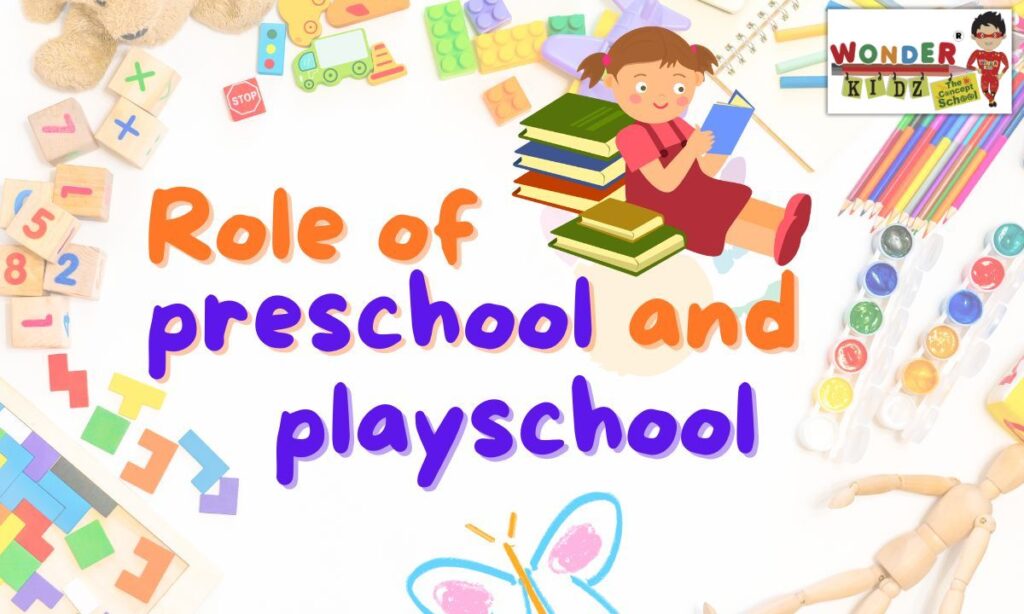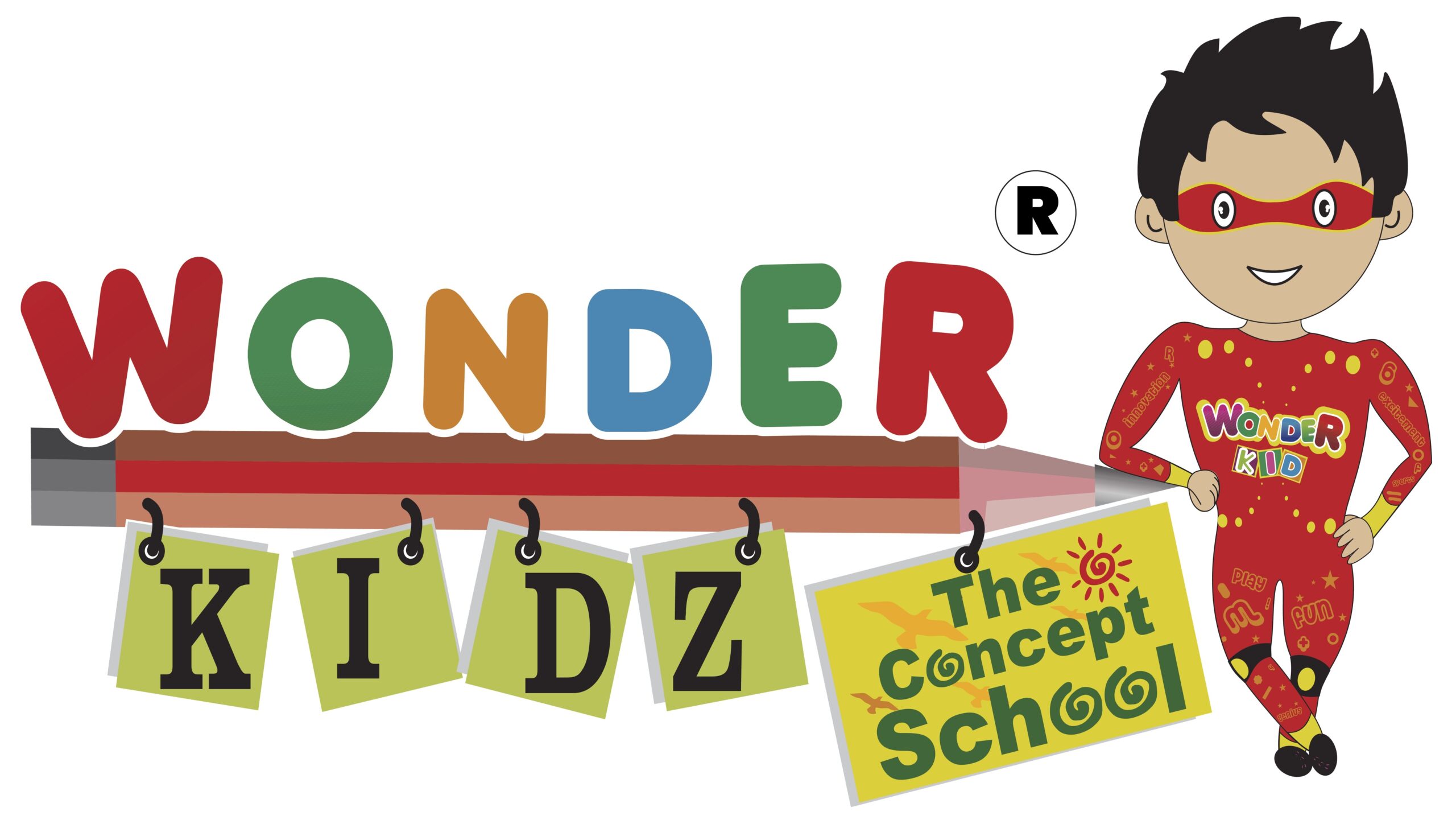When it comes to early childhood education, preschool and playschool play a pivotal role in a child’s development. These educational settings are more than just places where children spend time while their parents are at work. They are vibrant environments that foster growth, learning, and social skills from a very young age. Let’s explore the significant roles that preschools and playschools play in shaping a child’s early years.

What are Preschools and Playschools?
Pre school
Preschools are educational institutions designed for children typically aged 3 to 5 years. They focus on preparing children for formal schooling by introducing them to basic academic concepts and social skills. Preschools often follow a structured curriculum that includes activities aimed at developing language, numeracy, and motor skills.
Play school
Playschools, sometimes called playgroups, are informal educational settings for younger children, usually aged 2 to 4 years. The primary emphasis in playschools is on play-based learning. These environments prioritize exploration, creativity, and social interaction, helping children develop essential skills through play.
The Importance of Preschool and Playschool
Early Socialization
Preschools and playschools provide children with their first experiences of interacting with peers outside the family. This socialization is crucial for developing communication skills, learning to share, and understanding social norms. Children learn how to navigate group dynamics, which helps them adapt to school and social settings later on.
Foundational Learning
These early educational environments introduce children to foundational concepts in a playful and engaging manner. In preschools, children begin to learn basic literacy and numeracy skills through structured activities, while playschools focus on developing curiosity and cognitive skills through unstructured play.
Emotional Development
Preschools and playschools also support emotional development. Children learn to manage their feelings, cope with separation from their parents, and build self-confidence. Educators in these settings provide guidance and support, helping children develop resilience and a positive self-image.
Key Benefits of Preschools and Playschools
Enhanced Cognitive Skills
Both preschools and playschools offer activities that stimulate cognitive development. In preschools, children engage in activities that promote problem-solving and critical thinking. Playschools, on the other hand, use imaginative play to develop creativity and cognitive flexibility.
Improved Social Skills
By interacting with peers and participating in group activities, children in preschools and playschools learn valuable social skills. They learn to cooperate, negotiate, and resolve conflicts, which are essential for building healthy relationships throughout life.
Better School Readiness
Preschools, in particular, focus on preparing children for formal schooling. They introduce concepts such as letters, numbers, and basic science in a way that is accessible and engaging. This early exposure helps children transition smoothly into kindergarten and beyond.
Core Components of Quality Preschools and Playschools
Curriculum and Learning Activities
A quality preschool or playschool has a well-designed curriculum that caters to the developmental needs of young children. In preschools, this includes structured activities that promote academic skills. In playschools, the curriculum is more flexible, focusing on play-based learning and exploration.
Qualified Educators
The quality of education in preschools and playschools largely depends on the qualifications and expertise of the educators. Teachers should have specialized training in early childhood education and possess the skills to create a nurturing and stimulating learning environment.
Safe and Stimulating Environment
A safe, clean, and engaging environment is crucial for young learners. Preschools and playschools should have age-appropriate materials and resources that encourage exploration and learning. The environment should be designed to support various activities and allow children to learn through play.
Differences Between Preschool and Playschool
Structure and Formality
Preschools generally have a more structured approach compared to playschools. They often follow a set curriculum and schedule, with specific learning goals. Playschools offer a more informal setting, where the focus is on free play and social interaction.
Age Group and Developmental Focus
Preschools cater to slightly older children (3-5 years) and focus on preparing them for primary school. Playschools are designed for younger children (2-4 years) and emphasize play-based learning and socialization.
Parent Involvement
In playschools, there may be more emphasis on parental involvement and collaboration in the learning process. Preschools often have a more formal parent-teacher communication structure, focusing on academic progress and school readiness.
Challenges Faced by Preschools and Playschools
Access and Affordability
One of the main challenges faced by preschools and playschools is ensuring access for all families. High-quality programs can be expensive, and there may be disparities in availability based on geographic location and socioeconomic status.
Quality and Consistency
Maintaining high-quality education across different preschools and playschools can be challenging. Variations in standards, resources, and teacher qualifications can impact the effectiveness of these programs. Ensuring consistency and quality requires ongoing support and oversight.
Adapting to Diverse Needs
Preschools and playschools need to accommodate a diverse range of developmental needs and learning styles. This includes providing support for children with special needs and creating an inclusive environment that respects cultural differences.
Future Directions for Preschools and Playschools
Integration of Technology
As technology becomes more prevalent, preschools and playschools are exploring ways to integrate digital tools into their programs. Interactive technology can enhance learning experiences, but it is important to balance screen time with physical activity and social interaction.
Focus on Holistic Development
There is a growing emphasis on holistic development in early childhood education. Preschools and playschools are increasingly focusing on the emotional, social, and physical aspects of development, in addition to cognitive skills.
Increased Collaboration with Families
Future trends indicate a stronger emphasis on collaboration between preschools, playschools, and families. Engaging parents in their child’s education and fostering a supportive home-learning environment will be key to maximizing the benefits of early education.
Conclusion
Preschools and playschools are vital components of early childhood education, offering children a foundation for future learning and development. By providing a structured yet playful learning environment, these institutions support social, cognitive, and emotional growth. As we continue to address challenges and embrace new trends, the role of preschools and playschools will remain crucial in shaping the early years of our children’s lives.
Investing in a WONDER KIDZ Preschool Franchise can be a rewarding decision, both financially and personally. However, it requires careful consideration and planning. If you’re passionate about early childhood education and ready to take on the challenge, it could be the perfect opportunity for you in 2024.If you are interested in becoming a WONDER KIDZ franchisee or would like more information, please (Click Here) or call or WhatsApp at +91 94256 03871.
FAQs
What are the key differences between preschools and playschools?
Preschools are more structured and focus on preparing children for formal schooling, while playschools emphasize play-based learning and are generally less formal.
How do preschools and playschools support early childhood development?
Preschools and playschools support early childhood development by providing socialization opportunities, foundational learning experiences, and emotional support through structured and unstructured activities.
What qualifications should educators in preschools and playschools have?
Educators should have specialized training in early childhood education and possess skills in creating nurturing, engaging, and developmentally appropriate learning environments.
What challenges do preschools and playschools face?
Challenges include ensuring access and affordability, maintaining quality and consistency, and adapting to diverse developmental needs.
How can parents support their child’s experience in preschools and playschools?
Parents can support their child’s experience by engaging with educators, reinforcing learning at home, and participating in school activities to foster a strong partnership in their child’s education.
